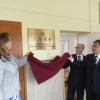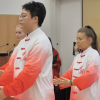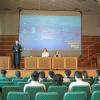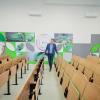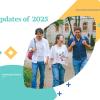DUC: More Accessible Mobility and Cooperation
2020
Dec
08
The EDUC Consortium (European Digital UniverCity) consisting of six universities started with a 5-million-euro grant provided by the European Commission with the aim to create a new modular and flexible system of management, and to revise and make their education structure more permeable. During the introductory online event held on 1 December they showcased the available programmes and possibilities they offer to students, teachers, and other employees of the university.
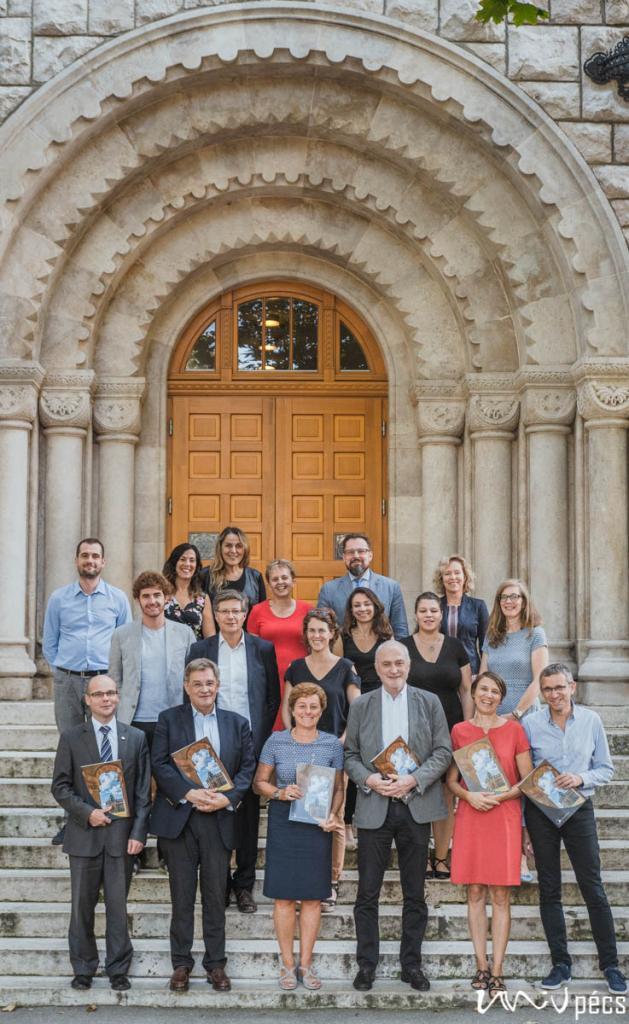
The association’s main goal is to make European higher education up to date and more competitive, in order to achieve this, the University of Cagliari (Italy), Masaryk University (Czech Republic), University of Rennes 1 (France), University of Nanterre (France), and the University of Pécs entered into a cooperative relationship under the leadership of the University of Potsdam (Germany). During the online event, based on a decision about the key concepts a year ago, the representatives of the different universities gave a detailed description of the projects aims, its unique features, and the unmatched international education and research potential.
The first half of the event addressed the students; first the leader of the consortium, the Vice-Rector of the University of Potsdam, dr. Florian Schweigert greeted the audience in the livestream on Facebook. While describing the aims of EDUC he emphasized how he wants to:
“inflame in you the fire to make Europe happening on an academic level!”
Following his speech, Tine Delva from the European Commission’s Secretariat-General showcased the groundbreaking role of the association on the level of the Union: “we want to make EDUC’s mechanisms structural, systematic, and sustainable” – she emphasized. “If the sky is the limit, lets go there!” – assured Tina Delva the EDUC association about the Commission’s full support. A representative of every partner institution addressed the audience, on behalf of the University of Pécs, dr. József Bethlehem, Vice-Rector for General Affairs, Connetionss and Strategic Affairs introduced the first university of Hungary highlighting the institution’s emphasis on internationalization, resulting in the fact, that 20% of the University’s students come from abroad.
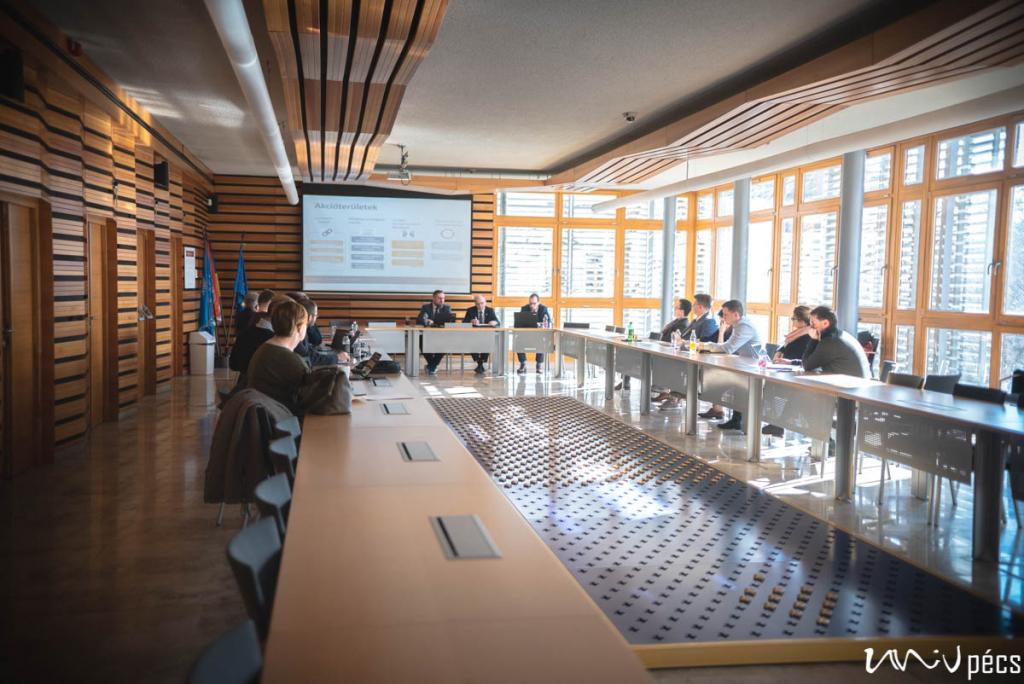
In the focus of the online event were the enhanced mobility opportunities between the six partner institutions, which they aim to raise tenfold from the current 4-5%. Even though, due to the coronavirus epidemic like much else these days, the mobility opportunities are limited to the online space as well, they can prove greatly advantageous none the less. Applying to mobility programmes becomes more and more worthwhile since within EDUC, numerous opportunities become available. For example students do not have to spend a whole semester abroad (e.g.: week-long internships) or they can even go beyond the one semester mobility with something called the “gap year” during which they can even study something completely unrelated to their major. They can even participate in online courses in either a synchronic or asynchronic manner. This partner system helps to establish joint research and collaborations within the consortium tremendously. After the epidemic is over, participants of the online courses and events can meet each other at physical follow up events.
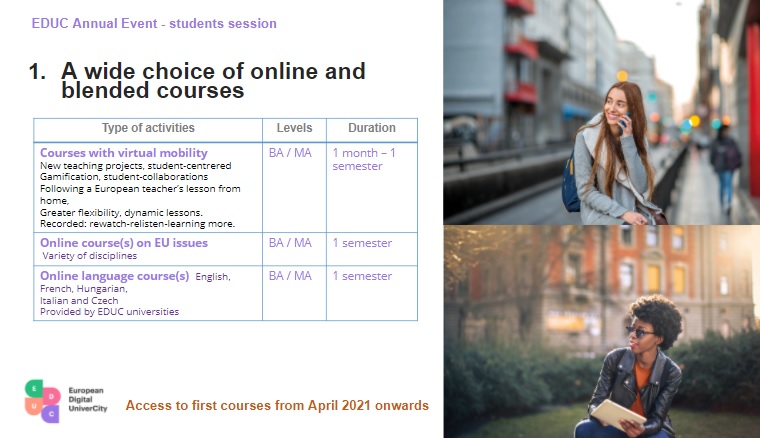
For those who would like to know how EDUC would help in their studies or on the labour market, members of the UP International Centre will gladly help, moreover, visiting the website of the EDUC Alliance and following the different scholarship opportunities would be beneficial to anyone. Opportunities for international education await students both during and after the epidemic. Spending a semester abroad (even if only virtually), organizing and executing it, solving any problems along the way, communicating with other nationalities, cultures in a different language are all surefire ways of improving students’ or researchers’ soft skills, which can prove tremendously useful both short and long term. These new experiences can broaden one’s perspective and gaining real-life experience in a foreign language can provide irreplaceable language skills.
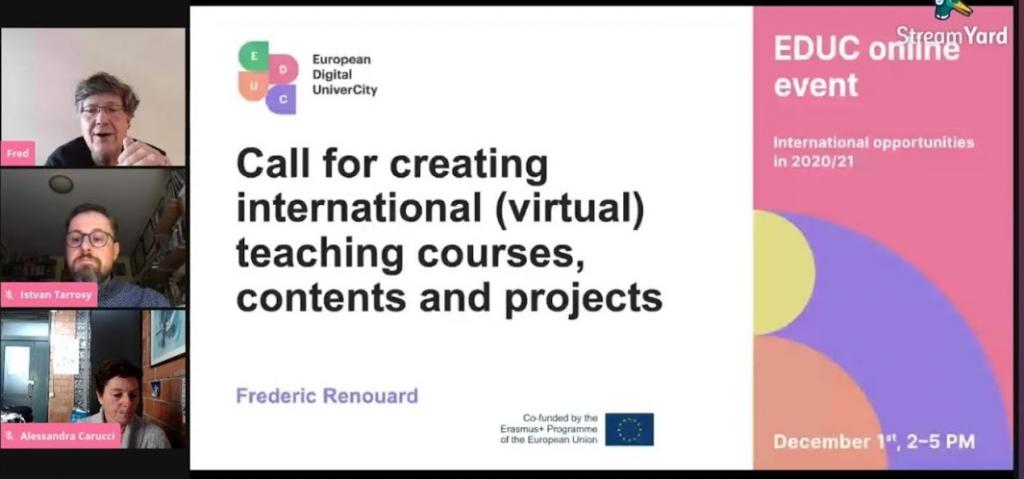
During the rather long Q&A session the presenters were bombarded with questions many of which came from the curious crowd of Pécs. Then the second half of the event addressed the teachers, researchers, and other employees of the university: There are many great opportunities awaiting them in 2021 like international research and education projects. The alliance established 7 key topics in order to broaden the international area of effect, out of these the University of Pécs will hold seminars and workshops about Life-Long health and wellbeing in March of next year – said dr. István Tarrósy, Director of the International Centre, University of Pécs. He also emphasized the undeniable advantages of international cooperation, and he highlighted the university’s regional importance, moreover, he talked about the grants and opportunities provided by the EDUC alliance. The numerous cooperative opportunities should be seized, since there are options ranging from online projects to open laboratories or joined research.
- Log in to post comments
University of Pécs | Chancellery | IT Directorate | Portal group - 2020.
